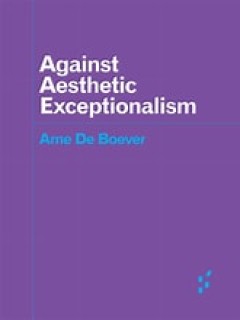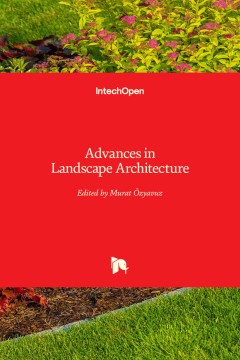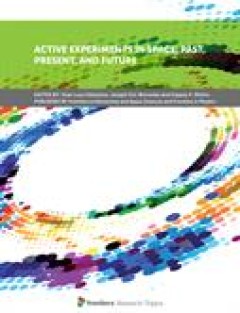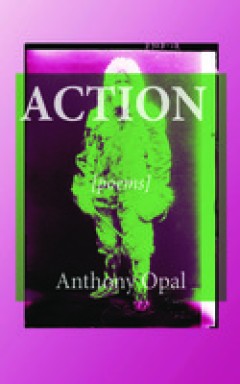Filter by

Advances and Applications in Mobile Computing
Advances and Applications in Mobile Computing offers guidelines on how mobile software services can be used in order to simplify the mobile users' life. The main contribution of this book is enhancing mobile software application development stages as analysis, design, development and test. Also, recent mobile network technologies such as algorithms, decreasing energy consumption in mobile netwo…
- Edition
- -
- ISBN/ISSN
- 9789535156369
- Collation
- 238 hlm; ill., lamp.,
- Series Title
- -
- Call Number
- -

Against Sex Education : Pedagogy, Sex Work, and State Violence
This book is available as open access through the Bloomsbury Open programme and is available on www.bloomsburycollections.com. Why do we have sex education? For whom does it exist, and who is it against? This book explores these questions, ultimately calling into question the very existence of sex education itself. The analysis is centred on the marginalised lives of sex workers. This focus all…
- Edition
- -
- ISBN/ISSN
- 9781350178465
- Collation
- 184
- Series Title
- Radical Politics and Education
- Call Number
- -

Against Aesthetic Exceptionalism
Reconsiders exceptionalism between aesthetics and politics Here, Arne De Boever proposes the notion of aesthetic exceptionalism to describe the widespread belief that art and artists are exceptional. Against Aesthetic Exceptionalism challenges that belief by focusing on the sovereign artist as genius, as well as the original artwork as the foundation of the art market. Engaging with sculpture, …
- Edition
- -
- ISBN/ISSN
- 9781452962450
- Collation
- 2019
- Series Title
- Forerunners: Ideas First
- Call Number
- -

Afterlives of the Garden
The collection of essays in this volume offers fresh insights into varied modalities of reception of Epicurean thought among Roman authors of the late Republican and Imperial eras. Its generic purview encompasses prose as well as poetic texts by both minor and major writers in the Latin literary canon, including the anonymous poems, Ciris and Aetna, and an elegy from the Tibullan corpus by the …
- Edition
- Sergio Yona
- ISBN/ISSN
- 9783111029733
- Collation
- 190
- Series Title
- CICERO
- Call Number
- -

Advances in Landscape Architecture
Landscape architecture is the design of outdoor and public spaces to achieve environmental, socio-behavioral, and/or aesthetic outcomes. It involves the systematic investigation of existing social, ecological, and geological conditions and processes in the landscape, and the design of interventions that will produce the desired outcome. The scope of the profession includes: urban design; site p…
- Edition
- -
- ISBN/ISSN
- 9789535153818
- Collation
- oer.unej.ac.id
- Series Title
- -
- Call Number
- -

Active Experiments in Space: Past, Present, and Future
This eBook is a collection of articles from a Frontiers Research Topic. Frontiers Research Topics are very popular trademarks of the Frontiers Journals Series: they are collections of at least ten articles, all centered on a particular subject. With their unique mix of varied contributions from Original Research to Review Articles, Frontiers Research Topics unify the most influential researcher…
- Edition
- -
- ISBN/ISSN
- 9782889636594
- Collation
- oer.unej.ac.id
- Series Title
- -
- Call Number
- -

After the Victorians
Written by a team of eminent historians, these essays explore how ten twentieth-century intellectuals and social reformers sought to adapt such familiar Victorian values as `civilisation', `domesticity', `conscience' and `improvement' to modern conditions of democracy, feminism and mass culture. Covering such figures as J.M. Keynes, E.M. Forster and Lord Reith of the BBC, these interdisciplinar…
- Edition
- -
- ISBN/ISSN
- 9781134911790
- Collation
- 278
- Series Title
- -
- Call Number
- -

Active and Passive Plasmonic Devices for Optical Communications
A short introduction to the theory of surface plasmon polaritons (SPPs) is given. The application of the SPPs in on-chip signal processing is discussed. In particular, two concepts of plasmonic modulators are reported, wherein the SPPs are modulated by 40 Gbit/s electrical signals. Phase and Mach-Zehnder modulators employing the Pockels effect in electro-optic organic materials are discussed. A…
- Edition
- -
- ISBN/ISSN
- 9783731504634
- Collation
- oer.unej.ac.id
- Series Title
- Karlsruhe Series in Photonics and Communications / Karlsruhe Institute of Technology, Institute of Photonics and Quantum Electronics (IPQ),
- Call Number
- -

Action [poems]
ACTION — as in begin, genesis, motion — is a collection of poems ultimately concerned with form, those lines drawn in the sand that give way to the profanity of the holy, the holiness of the profane. Throughout ACTION, Opal engages the constraints inherent to seemingly fixed forms. From living with rheumatoid arthritis, to feeling for the edges of a sonnet tradition, to wrestling with the t…
- Edition
- -
- ISBN/ISSN
- 9780692335543
- Collation
- oer.unej.ac.id
- Series Title
- -
- Call Number
- -

ACTH Action in the Adrenal Cortex: From Molecular Biology to Pathophysiology
By stimulating adrenal gland and corticosteroid synthesis, the adrenocorticotropic hormone (ACTH) plays a central role in response to stress. In this Research Topic, a particular attention has been given to the recent developments on adrenocortical zonation; the growth-promoting activities of ACTH; the various steps involved in acute and chronic regulation of steroid secretion by ACTH, includin…
- Edition
- -
- ISBN/ISSN
- 9782889452323
- Collation
- oer.unej.ac.id
- Series Title
- -
- Call Number
- -
 Computer Science, Information & General Works
Computer Science, Information & General Works  Philosophy & Psychology
Philosophy & Psychology  Religion
Religion  Social Sciences
Social Sciences  Language
Language  Pure Science
Pure Science  Applied Sciences
Applied Sciences  Art & Recreation
Art & Recreation  Literature
Literature  History & Geography
History & Geography